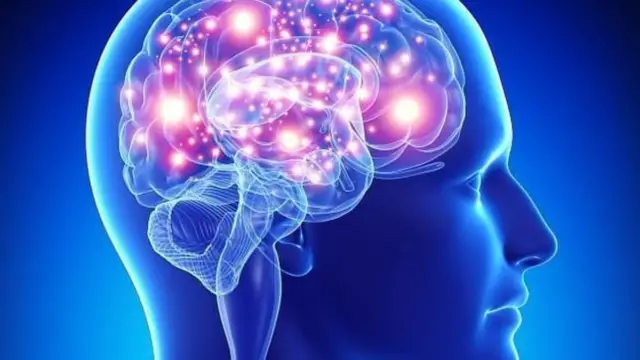It is well known that a problem cannot be conceived as such until the concepts to define and delimit it have been created. That is why, among other things, our current conception of what well-being should be has been expanding to include aspects of human life that decades ago would have been unimportant or even disdained.
Today, however, we speak not only of the importance of meeting the basic needs of each one of us, but of a realm of potential that is much broader than the possibility of feeling physically well. This concept has been called “wellness”.
Wellness is an idea that more and more therapists and psychologists are working with, but also hotel organizations with spas and agencies that offer weekend experiences. But what exactly is wellness and why is it so popular?
Wellness or a new conception of well-being
What we understand today as wellness derives from the ideas of Halbert L. Dunn, an American statistician who is considered the father of the Wellness Movement. In the 1950s, Dunn developed the idea of wellness, understanding that human well-being had to go beyond what had been included in the field of health until then. Thus, this concept had to include, in addition to the proper functioning of the organism, the ability to opt for various paths of self-realization.
In this way, the wellness that Halbert L. Dunn spoke of can be understood as the dynamics and lifestyle through which human potential is brought to its maximum in the physical, mental and spiritual spheres. As the theorizing of wellness includes the acceptance of the existence of a mental and spiritual world in addition to the physical, this concept is used especially in circles of influence of alternative medicine and non-experimental psychology.
Since the 1950s, and especially with the impulse that the New Age culture took in the 1970s, this idea of health has spread to spa centers, spas and wellness hotels, but also to travel programs and experiences that offer weekends, wellness week, and long stays dedicated to improving the standard of living.
An eternally postponed question
This new way of understanding well-being was not born in the middle of the 20th century by chance. There are reasons why today there are many wellness centers and a century ago this idea was not even raised. This is so because changes in social conditions have made it possible for the philosophy of wellness and comprehensive health to spread.
It is curious that, although Western human societies have assumed for many centuries the existence of a separation between body and soul, all their efforts to improve people’s quality of life (that of the wealthy classes, in concrete) have focused only on the realm of the physical. The spiritual realm, which is understood as linked to the divine and therefore seems much more important than the “simple carcass of flesh and bones”, takes center stage in the practice of creating ideal living conditions.

A chosen few ones
The feeding of the soul was something that was reserved for very small elites and their entourage, even though there was always a philosopher who, despite having problems surviving, insisted on answering these types of questions.
Of course, until not so long ago, it was difficult to try to respond to a repertoire of needs as difficult to define as those that correspond to the spiritual sphere, and even less so with the scarce resources and limited technologies available. How could the ancient Romans, for example, have talked about wellness, which depended on the denial of the human character of their slaves to maintain themselves an acceptable standard of living, and use their services with total freedom?
Nowadays, however, talking about wellness is already possible. And it is, among other things, because we already have the resources and technology to stop postponing the fundamental question indefinitely: what happens to the well-being of our minds?
Wellness in a wellness society
It is not surprising, therefore, that this notion of what wellness is practically coincides with the appearance of the welfare state, shortly after the Second World War. As the basic needs of more and more social strata were being met thanks to the redistribution of wealth, it was easier to push the reach of all positive human values further.
It is at this time that there is more talk about freedom, autonomy to be able to choose a lifestyle adapted to one’s own way of being and doing things. It is also at this time that the idea begins to spread that well-being must attend to issues that have not been dealt with until now.
Even many psychology professionals are beginning to focus their interventions on the need not only to treat mental problems, but also to help lead patients towards happiness and self-realization. The needs of the spirit, reformulated as needs of the mind, become some of the main objectives.
In this way, all ideas related to health and fitness have been soaked in the notion of wellness; from plans to lose fat, lose weight and maintain a flat stomach, to treatment plans for sick patients or to help carry healthy diet plans.
Science speaking
As always happens with concepts that appeal to a spiritual world that works by logics other than the physical realm, wellness in its original definition is not something that is taken into account in scientific psychology or conventional medicine. The investigations and intervention plans from these instances usually focus on the study of subjective experience and the placebo effect, but not on the consideration of areas of well-being that are disconnected from normal biological and physiological processes.

It is clear that weight loss plans could work better if the idea of wellness is internalized and accepted by patients, and that hotels can improve their economic results if they include a wellness center in their services, but that does not tell us much about an area of human needs separated from the rest of areas of physical health. So while many spas, hotels, travel agencies and alternative medicine organizations may find the idea of wellness helpful, it is not a universal truth. Believing in wellness can open the doors to a new way of developing happiness and enjoying life, but not doing so does not make us people far from authentic well-being.

